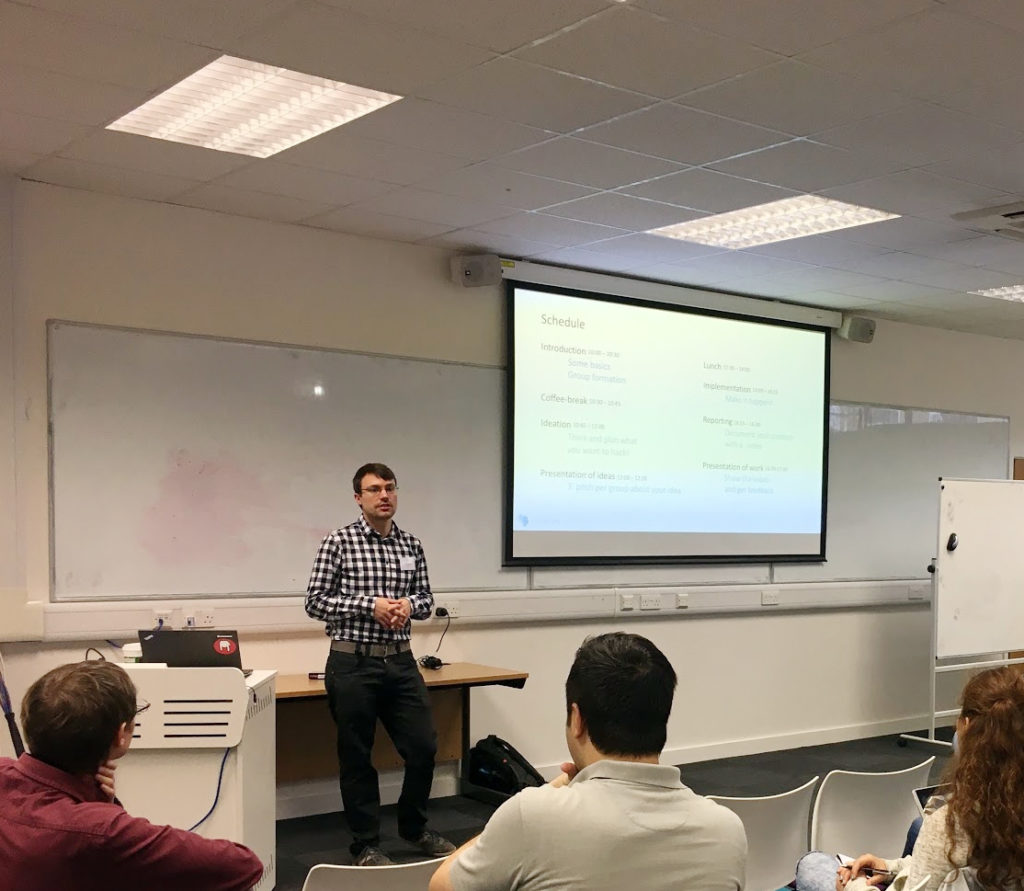On Wednesday September 20th, Jakob Karolus and me ran a Physical Computing and Biosensing Hackathon within the context of the AffecTech training week in Lancaster. The event was organized by Prof. Corina Sas and Dr. Jason Alexander from the University of Lancaster.
In this day-long event, 15 AffecTech Ph.D. students with backgrounds ranging from Clinical Psychology to Human-Computer Interaction worked in multidisciplinary groups to create systems that support people coping with emotional and affective conditions. This was the third iteration of this workshop, an ideation tool for research topics within the European Comission grant AMPLIFY (683008) aimed to develop new approaches to the augmentation of the human senses.

After an introduction to physical computing and biosensing, the participants were prompted to ideate technology applications that could profit from biosensing to improve emotional well-being by helping people convey and perceive emotional states. Even within the limited time that a workshop permits, the performance of the participants surpassed all expectations, realising promising and innovative ideas into functional prototypes, such as a tool that aids to breathe together remotely or a system that detects increments in anxiety by measuring face muscles.

